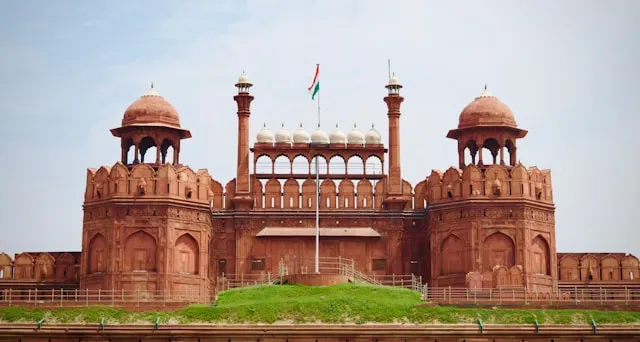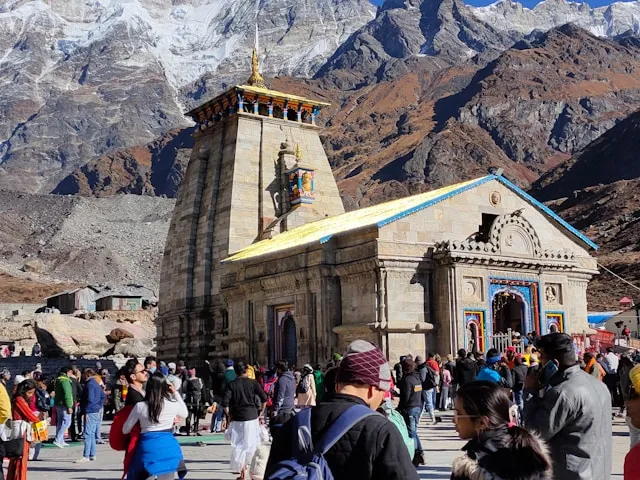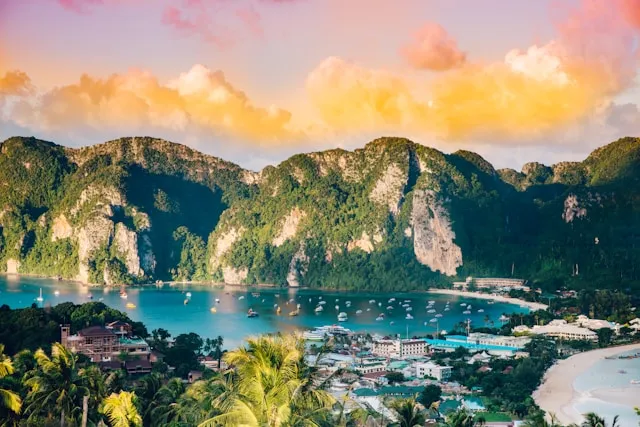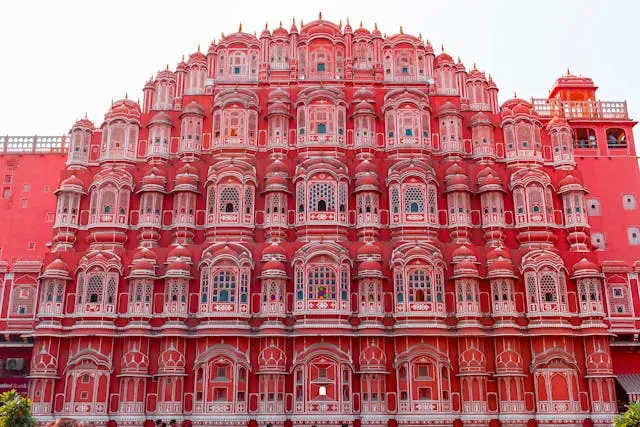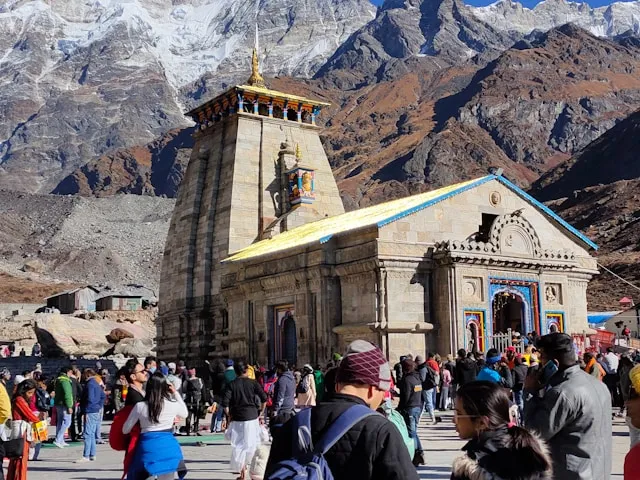Tawang Monastery Travel Guide
Arunachal Pradesh
About Tawang Monastery Travel Guide
Destination Overview in Tawang
Tawang Monastery, located in the scenic hill town of Tawang in Arunachal Pradesh, India, is one of the largest and most significant Buddhist monasteries in India and the second largest in Asia. Founded in the 17th century, it is an important center for Mahayana Buddhism and serves as a spiritual hub for the Monpa tribe. The monastery’s stunning architecture, serene surroundings, and panoramic views of the Himalayan ranges make it a must-visit destination for travelers seeking spiritual solace and cultural immersion.
Top Attractions & Places to Visit in Tawang
Tawang Monastery – The main attraction with its impressive structure and prayer halls
Urgelling Monastery – Birthplace of the 6th Dalai Lama
Madhuri Lake (Sangetsar Lake) – Beautiful alpine lake surrounded by pine forests
Bumla Pass – Indo-China border pass with historical significance
Pankang Teng Tso Lake – Picturesque high-altitude lake ideal for nature lovers
Sangetsar Lake – Known for its natural beauty and tranquility
Best Time to Visit in Tawang
Best months: April to October offer pleasant weather and clear skies ideal for sightseeing and trekking. Winters (November to March) are harsh and snowy, making travel difficult.
Festivals & Events:
Losar Festival – Tibetan New Year celebrated with traditional dances and rituals
Torgya Festival – Annual festival with religious ceremonies and mask dances
How to Reach Tawang
Air:
Nearest airport is Tezpur Airport (Assam), about 180 km away.
Rail:
Nearest railway station is Rangapara North in Assam, approximately 160 km from Tawang.
Road:
Tawang is well-connected by road from Tezpur and Guwahati through picturesque mountain routes.
Local Transport:
Shared taxis and buses are available within Tawang for local sightseeing.
Accessibility for Differently-Abled Travelers in Tawang
Due to the hilly terrain and traditional structures, accessibility is limited; however, efforts are made at major tourist spots to accommodate differently-abled visitors.
Things to Do & Experiences in Tawang
Attend morning prayers and witness traditional rituals at Tawang Monastery
Explore local Monpa culture and handicrafts
Trek to nearby scenic spots like Pankang Teng Tso and Bumla Pass
Capture panoramic views of the Himalayas and valleys
Experience local festivals if visiting during event seasons
Accommodation Options in Tawang
Options range from comfortable guesthouses to government-run tourist lodges:
Hotel Gaganjeet
Tawang Tourist Lodge
Hotel Tawang Regency
Popular areas for stays are near the monastery and the town center.
Local Cuisine & Dining in Tawang
Taste local Monpa cuisine featuring dishes like thukpa (noodle soup), momos (dumplings), gyapa khazi (buckwheat pancakes), and butter tea. Small eateries and local homes offer authentic food experiences.
Travel Tips & Safety in Tawang
Carry warm clothing even in summers due to chilly weather
Roads can be challenging; travel carefully especially during monsoon
Respect local customs and traditions, especially in religious places
Mobile network coverage may be limited in some areas
Emergency contacts: Local police and health centers available
Weather Details & Packing Suggestions in Tawang
Summer: Light woolens and layered clothing
Winter: Heavy woolens, thermals, gloves, and caps are essential
Rainy season: Waterproof jackets and sturdy boots recommended
Currency Exchange & Banking Facilities in Tawang
Limited banking facilities; carry sufficient cash in Indian Rupees as ATMs are scarce. Nearest ATMs are available in larger towns like Tezpur.
Connectivity & SIM Card Info in Tawang
Network coverage is patchy; BSNL and Airtel offer some connectivity. It is advisable to purchase SIM cards before entering remote areas.
Itinerary Suggestions in Tawang
1-Day: Visit Tawang Monastery, local market, and Urgelling Monastery.
3-Days: Include Madhuri Lake, Bumla Pass, and Pankang Teng Tso Lake.
5-Days: Add trekking routes, local village tours, and attend festivals if timed right.
Nearby Destinations to Explore from Tawang
Bomdila – 160 km by road, known for its monasteries and scenic views
Dirang Valley – Known for hot springs and natural beauty
Sela Pass – Famous mountain pass en route to Tawang
Shopping & Souvenirs in Tawang
Handmade woolen shawls, traditional Monpa jewelry, prayer flags, and handicrafts are popular souvenirs.
Cultural & Historical Background of Tawang
Tawang Monastery was established by Merak Lama Lodre Gyatso in 1680 and has been a major center of Tibetan Buddhism since. It played a significant role in the spiritual and cultural life of the Monpa people and has connections with the Dalai Lama. The region has a rich history tied to Tibetan Buddhist traditions and Indo-China border relations.
Best Transport Options in Tawang
Shared taxis and local buses are the main transport modes for tourists. Walking is preferred within the town and monastery areas.
Nearest Railway Station or Airport in Tawang
Nearest railway station: Rangapara North Railway Station (Assam)
Nearest airport: Tezpur Airport (Assam)
FAQs About Tawang Monastery
Is Tawang Monastery open year-round?
Yes, but winter months can be difficult due to heavy snowfall and road closures.
Do I need any permits to visit Tawang?
Indian citizens need an Inner Line Permit (ILP) to enter Arunachal Pradesh, including Tawang. Foreign nationals require a Protected Area Permit (PAP).
Is Tawang safe for solo travelers?
Yes, Tawang is generally safe but advisable to travel during daylight and stay updated on local weather conditions.
What languages are spoken in Tawang?
Monpa is the primary language, along with Hindi and English in tourist areas.
Are there medical facilities available in Tawang?
Basic medical facilities are available; for serious cases, travelers may need to visit larger towns like Tezpur or Guwahati.
Sustainability & Responsible Tourism in Tawang
Tourists are encouraged to respect the fragile Himalayan environment by minimizing plastic use and avoiding littering. Supporting local artisans and purchasing handmade goods promotes the local economy. Visitors should follow guidelines at religious sites to maintain their sanctity. Efforts are underway to promote eco-friendly travel and reduce environmental impact in this pristine region.
Need a Tawang Monastery Travel Guide Customized Itinerary?
Let us create your perfect Tawang Monastery Travel Guide journey

Gallery

Weather
Location Map
Arunachal Pradesh
Latest Blog Posts
Latest News: Tawang Monastery Arunachal Pradesh | Tawang Monastery Travel Guide – History, How to Reach, Best Time to Visit
What Our Travelers Say
Real experiences from our valued customers
"The Tirumala Darshan was an unforgettable experience. Everything was well-organized, and I felt blessed throughout the trip."
Sanjay Agarwal (Kanpur, India)
"The Char Dham package was spiritually fulfilling. Every detail was well planned. A once-in-a-lifetime experience!"
Neelam Agarwal (Delhi, India)
"The Somnath Darshan trip was incredible! Great accommodations, fantastic guides, and an overall peaceful experience."
Arun Mehta (Gurgaon, India)
"Badrinath was beyond words! The guidance and assistance provided made the journey effortless. A spiritual retreat like no other."
Vikram Singh (Lucknow, India)
"The Rishikesh Ganga Aarti was magical. The team ensured the trip was perfectly planned, making it an unforgettable experience."
Thomas Lee (San Francisco, USA)
"The Kailash Yatra is something I’ll never forget. The holy mountain radiated peace, and the journey was spiritually fulfilling. The entire process was seamless and well-handled by the team."

